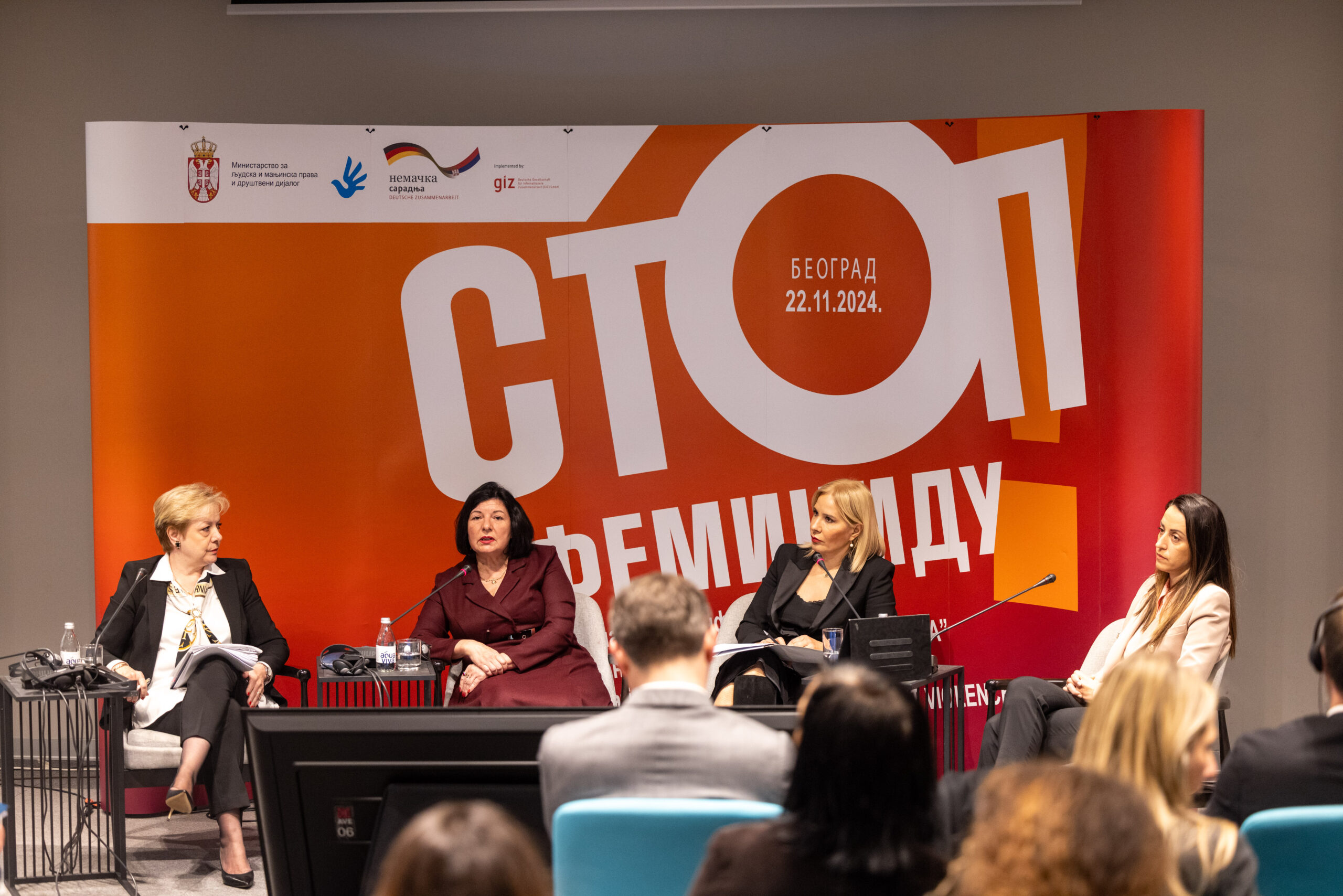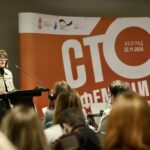Serbia has made significant progress in the prevention of violence
Gender-based violence is a global challenge that knows no borders, and United Nations data show that every third woman, globally, has experienced physical or sexual violence during her lifetime. Femicide, the most serious form of gender-based violence, is often the end result of years of abuse and systematic neglect of the need for justice and support. Also, alarming data comes from the civil sector and shows that 17 cases of femicide were recorded in Serbia in the period from January to November of this year alone. These figures are not just statistics, but a warning that gender-based violence remains a key obstacle to the development of any society, and that solving this problem requires the cooperation of all sectors of society. This is exactly one of the key messages of the conference “Stop femicide! – 16 Days of Activism’: “A World Without Violence” conducted within the German Development Cooperation by the Ministry of Human and Minority Rights and Social Dialogue in cooperation with Deutsche Gesellschaft für Internationale Zusammenarbeit (GIZ) GmbH and in partnership with the Ministry of Labour, Employment, Veterans and Social Affairs.
Serbia has made significant progress in the mechanisms for preventing violence, processing cases of violence and reporting on them. However, there remains a need for further investments in integrated services at the local level, as well as in a legislative framework that will enable a systemic fight against violence. This includes training professionals, developing gender-sensitive policies and increasing resources to support victims.
On the other hand, despite economic growth in recent years, many citizens of Serbia, especially women and girls, face limited opportunities for social and economic participation. Gender-based discrimination, together with patriarchal social structures, further complicates their position.
At the local level, there is still a lack of effective services that respond to specific gender needs. Marginalized groups, such as women from rural areas, Roma man and Roma women and people with disabilities, are often excluded from social and economic life, which makes them more vulnerable to poverty and violence. Therefore, a strong network of civil society organizations provides crucial support to survivors and works to spread and raise awareness.
Strengthening integrated social protection services at the local level through further development of the integrated services model implies the introduction of integrated social services that include psychosocial, health and economic support for women who are victims of violence within the already existing Marriage and Family Counseling Centers.









